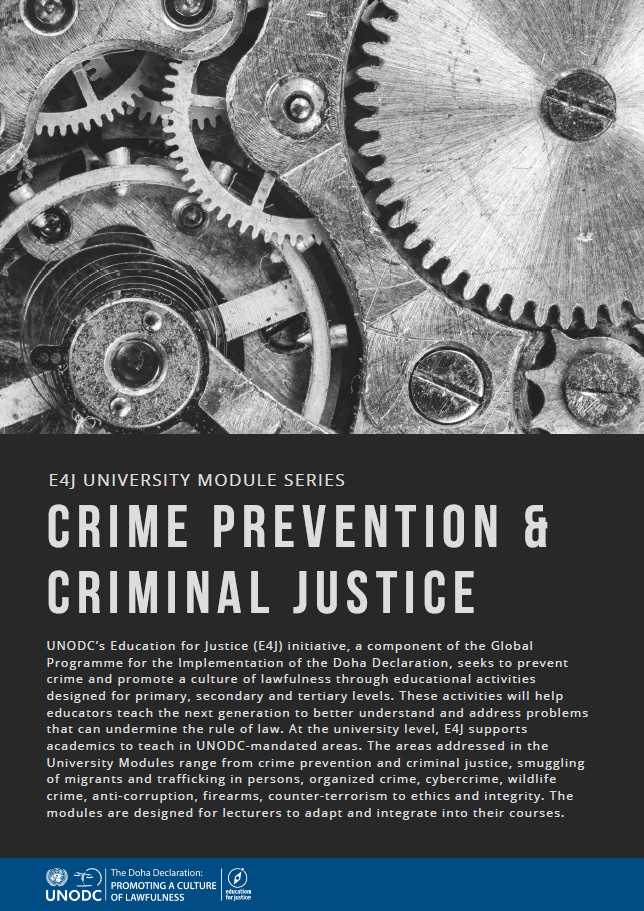
University Module Series
 Crime Prevention and Criminal Justice
Crime Prevention and Criminal Justice
Module Series
Overview
Education plays a key role in preventing crime and promoting a culture of lawfulness that supports human rights and fundamental freedoms for all. The E4J initiative is developing a series of modules on crime prevention and criminal justice, which lecturers can use as a basis for teaching in universities and academic institutions all around the world. Addressing a broad range of criminal justice topics, the series will equip students with knowledge about the fundamental role that effective, fair, humane and accountable crime prevention and criminal justice institutions play in support of the rule of law and the promotion of peace. To increase their effectiveness, the modules will connect theory to practice, encourage critical thinking, and use innovative interactive teaching approaches such as experiential learning and group-based work. The modules will be multi-disciplinary and can be integrated in existing courses on criminology, law, political science, international relations, sociology, and many other disciplines. The broad range of examples used to elucidate the United Nations standards and norms on crime prevention and criminal justice means that the modules are relevant globally. The modules can also be adapted by lecturers to address specific local and cultural contexts, and the E4J Teaching Guide on Crime Prevention and Criminal Justice will provide lecturers with additional guidance on teaching the modules across multidisciplinary settings.
Terms of Use and Disclaimers
Note: This film features footage taken during the E4J Regional Workshop held West Africa, in June 2019, as well as footage from an E4J Workshop held in Vienna, Austria, in October 2018.
The following modules are available online:
- Teaching Guide
- Module 1: United Nations Norms and Standards on Crime Prevention and Criminal Justice
- Module 2: Crime Prevention
- Module 3: Access to Legal Aid in Criminal Proceedings
- Module 4: Use of Force and Firearms
- Module 5: Police Accountability, Integrity and Oversight
- Module 6: Prison Reform
- Module 7: Alternatives to Imprisonment
- Module 8: Restorative Justice
- Module 9: Gender in the Criminal Justice System
- Module 10: Violence against Women and Girls
- Module 11: Access to Justice for Victims
- Module 12: Violence against Children
- Module 13: Justice for Children
- Module 14: Independence of the Judiciary and the Role of Prosecutors
Selected modules are available in Arabic, French, Portuguese, Russian and Spanish; the translation process is ongoing.
